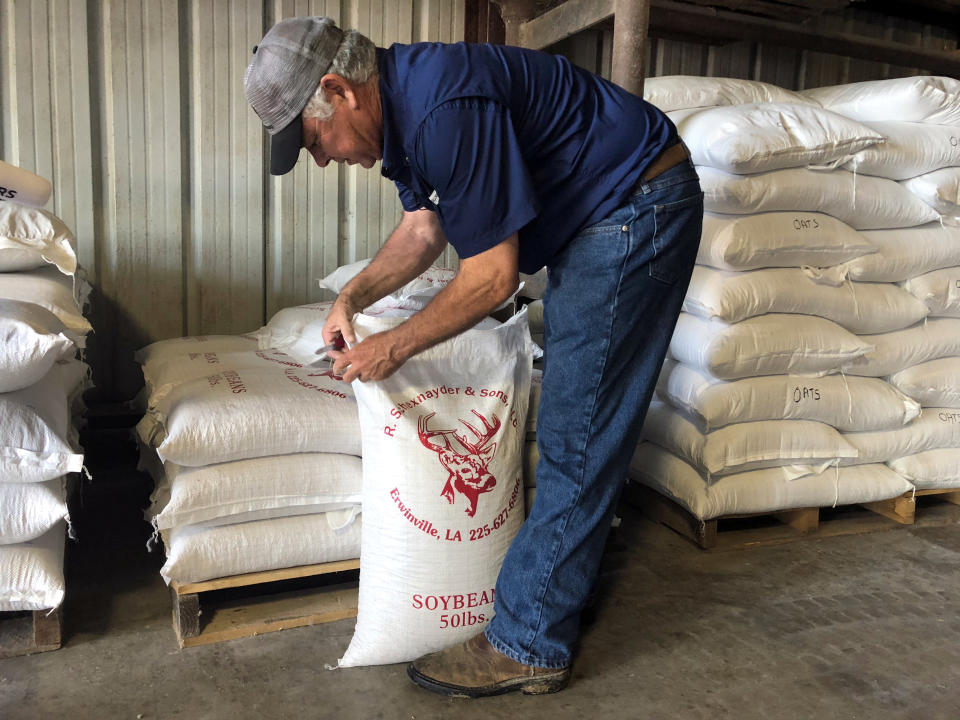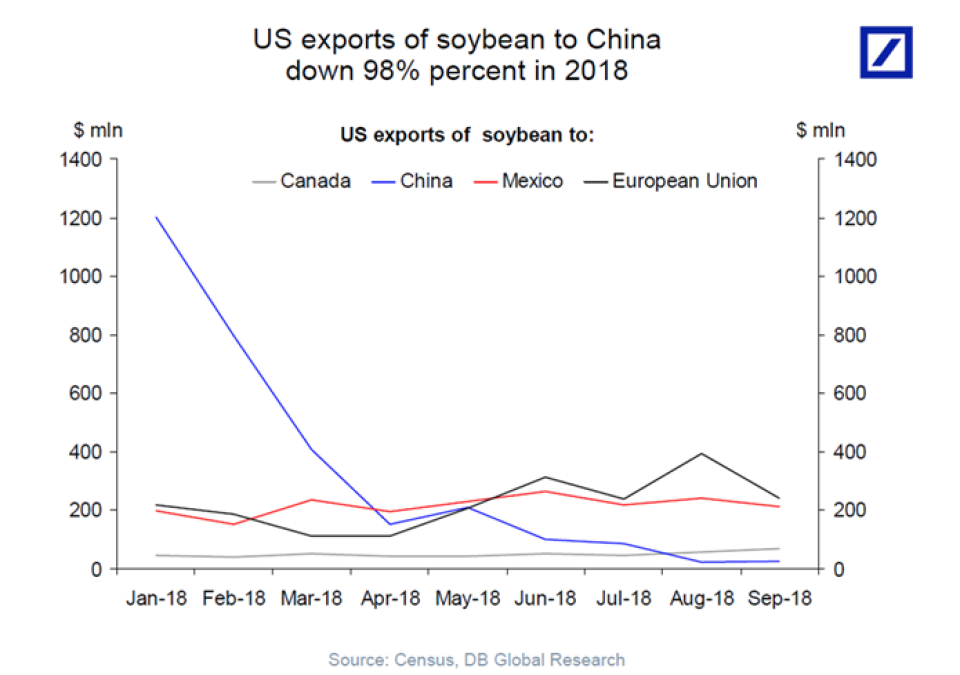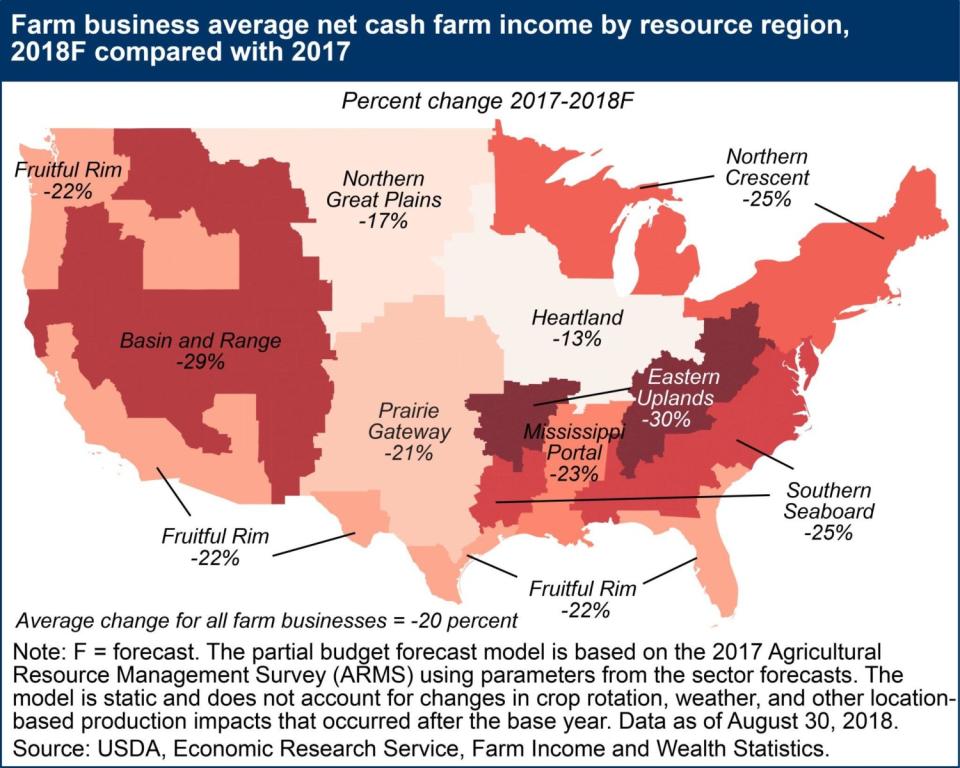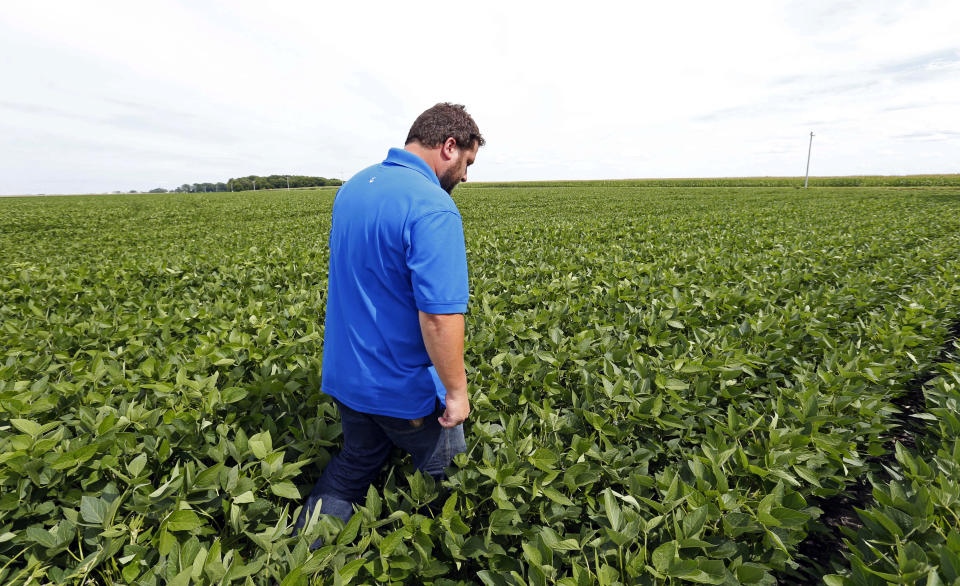U.S. soybean farmer: 'We obviously are struggling' amid U.S.-China trade war
On Saturday evening, Trump administration announced that President Trump and China’s President Xi Jinping reached a trade truce during the G-20 summit in Argentina. The White House stated that deal included China “immediately” purchasing American agricultural products, including soybean exports.
Overall, the U.S. and China agreed to hold off on issuing new tariffs while negotiations are underway (for the next 120 days or so). However, in China’s statement regarding the meeting, there was no mention of a promise to resume buying American agricultural products.

‘We obviously are struggling’
Blake Hurst, a soybean farmer and president of the Missouri Farm Bureau, detailed the issues that soybean farmers are facing as a result of the continued trade tensions between the U.S. and China.
“We obviously are struggling from low prices,” Hurst told Yahoo Finance’s Midday Movers on Friday. “There’s some financial stress being felt by all of us because of the drop in soybean exports.”
U.S. soybean exports to China are down 98% in 2018, as a result of China turning to Brazil for the crop instead. Soybeans were the top U.S. agricultural export to China in 2017.
“They’re clearly doing everything they can do in order to buy from anybody but us,” Hurst said.

“One of the problems we’ve all struggled with is trying to describe what’s happened to us,” Hurst said. “We’ve seen record yields, a record crop this year, and a $2, or about a 10%, drop in soybean prices. Some of that due to the tariffs and the trade problems, but some of it due just to a big crop that we have to figure out how to market. So, the combination [of] the two has been pretty stressful for farmers.”
The pain extends to all kinds of farmers hit by the trade war.

‘Soybean prices at present levels are not profitable’
While tensions simmer, soybean farmers are scrambling to find ways to store their record 4.6 billion bushels that the Chinese aren’t buying due to the tariffs.

“We’re clearly putting any large investment on hold,” Hurst said. “Soybean prices at present levels are not profitable. We can cover our variable costs, but they certainly don’t come anywhere near to cover investment.”
In the last year, soybean prices fluctuated from a high of $10.77 per bushel to as low as $8.14. After news of the trade truce, the commodity jumped as much as 3.2%, although the terms of the new deal still remain to be seen.
Adriana is an associate editor for Yahoo Finance. Follow her on Twitter @adrianambells.
READ MORE:
Follow Yahoo Finance on Twitter, Facebook, Instagram, Flipboard, LinkedIn, and reddit.

